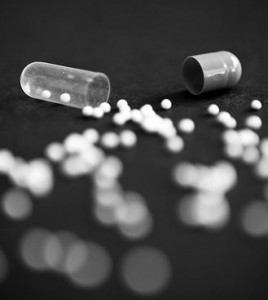Ukrainian activists of harm reduction [1]programs discuss on the web the issues which are vital for people living with a drug addiction. One of these issues is the necessity for special opiate painkillers when a drug addict is taken to a hospital.
An activist of the Association of Substitution Treatment Advocates of Ukraine [2] reports on the web-site of the association a number of stories where people living with drug addiction had to leave a hospital in severe medical conditions as they were not given painkillers which would help to remove an abstinent syndrome [3]. Sometimes such people are even denied a medical assistance.
Sergey wrote [4]:
Ира приехала в родильный дом счастливая, потому что малыша своего любит и ждёт его появления на свет. Роды были тяжёлые: кесарево сечение, потеря крови, слабость. Утром Ира просила вызвать нарколога, чтобы могли назначить обезболивающее. Нарколог приехал, написал в карточке диагноз и уехал. Врачи сказали, что потакать наркоманке никто не собирается. Хочет, пусть уходит, только напишет отказную на малыша…
Иру мы нашли в заброшенном доме, на 3-й день после родов. Она почти не вставала, плакала. Единственное, о чём Ира просила, чтобы мы не рассказали врачам, где она. Ира больше смерти боялась вернуться опять в больницу».
We have found Ira in a derelict house on the third day after the delivery. She was not able to stand up and cried all the time. The only thing she asked for was not to say the doctors where she was. Ira was afraid of returning to the hospital more than a death.
Sergey believes that Ira’s story is fairly typical. Ukrainian doctors in general do not prescribe painkillers for people who need them, not only to people living with a drug addiction but also to other patients and even to cancer patients. He wrote:
Таких случаев тысячи. Врачи не считают боль абстиненции медицинской болью. Люди страдают, а наша страна отчитывается об уменьшении объемов потребления опиоидных анальгетиков и ограничении их доступности для пациентов. По оценкам экспертов, в Украине соответствующее медикаментозное обезболивание получают лишь только около 20% онкобольных… тогда как по данным ВОЗ, 60% онкобольных страдают от хронической сильной боли.
Нехватку обезволивающих средств нельзя ни объяснить, ни оправдать.
Я не могу оправдать поступки врачей. Даже когда они объясняют, что боятся милиции. Что всё по розовым бланкам, и они не хотят садиться в тюрьму.
Гадать, причина – страх, следствие – жестокость или наоборот, бесперспективно. […]Чтобы выйти из тупика, надо чиновников Государственной службы по контролю над наркотиками [8] и врач, который отказал выписать обезболивающее, привести и оставить на одну ночь в палате или квартире, где кричит человек от боли. Потом ещё на одну ночь.
Может тогда позиция нашего государства по наркотикам, которую принято называть – наркополитика [9], изменится в сторону решения реальных проблем.
To find out the solution it would be good to make an official from the State Service of Narcotic Drugs Control [10]and a doctor who refused to prescribe a painkiller to spend a night in a same room with a person crying from a pain and then to make them to spend one more night over there.
It might be that after this the position of our government on drugs which is often called a Narcopolicy [9]will change aiming to solve the real problems.
Sergey is positive that forcing Ukrainian government to follow the international conventions which it signed is one of the main goals of the work of the Association of Substitution Therapy Advocates and the Association has already made some steps in this direction via reminding the government about its international obligations, collecting the stories and forming a list of violations to be used for advocacy purposes. Sergey concluded:
Два из 14 неотъемлемых прав пациента [11] – это:
¨ право на доступность медицинских услуг, которые он/она требует по состоянию здоровья. Медицинские службы должны гарантировать равный доступ для всех без дискриминации по признакам финансовых ресурсов, места проживания, вида заболевания или времени обращения за помощью;
¨ право избегать страдания и боли на каждом этапе заболевания.
Теперь мы не только об этом знаем, но и успешно пользуемся своими правами. Только мы в самом начале пути.
A right of access to medical services required by health conditions. Medical establishments should provide an equal access without a discrimination based on financial state, place of residence, type of disease and time of requested services.
A right to avoid suffer and pain during each stage of a disease.
Now we not only know about this but are able to successfully implement our rights. But we still have a lot of thing to do in the future.

